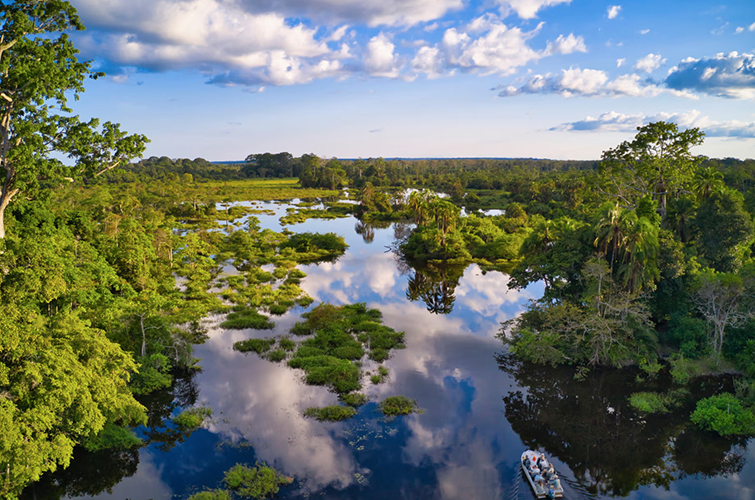The sudden collapse of carbon sinks was not factored into climate models – and could rapidly accelerate global heating
||| FROM THE GUARDIAN |||
It begins each day at nightfall. As the light disappears, billions of zooplankton, crustaceans and other marine organisms rise to the ocean surface to feed on microscopic algae, returning to the depths at sunrise. The waste from this frenzy – Earth’s largest migration of creatures – sinks to the ocean floor, removing millions of tonnes of carbon from the atmosphere each year.
This activity is one of thousands of natural processes that regulate the Earth’s climate. Together, the planet’s oceans, forests, soils and other natural carbon sinks absorb about half of all human emissions.
But as the Earth heats up, scientists are increasingly concerned that those crucial processes are breaking down.
In 2023, the hottest year ever recorded, preliminary findings by an international team of researchers show the amount of carbon absorbed by land has temporarily collapsed. The final result was that forest, plants and soil – as a net category – absorbed almost no carbon.
There are warning signs at sea, too. Greenland’s glaciers and Arctic ice sheets are melting faster than expected, which is disrupting the Gulf Stream ocean current and slows the rate at which oceans absorb carbon. For the algae-eating zooplankton, melting sea ice is exposing them to more sunlight – a shift scientists say could keep them in the depths for longer, disrupting the vertical migration that stores carbon on the ocean floor.
“We’re seeing cracks in the resilience of the Earth’s systems. We’re seeing massive cracks on land – terrestrial ecosystems are losing their carbon store and carbon uptake capacity, but the oceans are also showing signs of instability,” Johan Rockström, director of the Potsdam Institute for Climate Impact Research, told an event at New York Climate Week in September.
“Nature has so far balanced our abuse. This is coming to an end,” he said.
The 2023 breakdown of the land carbon sink could be temporary: without the pressures of drought or wildfires, land would return to absorbing carbon again. But it demonstrates the fragility of these ecosystems, with massive implications for the climate crisis.
Reaching net zero is impossible without nature. In the absence of technology that can remove atmospheric carbon on a large scale, the Earth’s vast forests, grasslands, peat bogs and oceans are the only option for absorbing human carbon pollution, which reached a record 37.4bn tonnes in 2023.
At least 118 countries are relying on the land to meet national climate targets. But rising temperatures, increased extreme weather and droughts are pushing the ecosystems into uncharted territory.
The kind of rapid land sink collapse seen in 2023 has not been factored into most climate models. If it continues, it raises the prospect of rapid global heating beyond what those models have predicted.
‘We have been lulled – we cannot see the crisis’

A tourist boat in the Republic of Congo’s Odzala-Kokoua national park. The Congo basin is the only tropical rainforest that consistently removes more CO2 than it releases.Photograph: G Guni/Getty
For the past 12,000 years, the Earth’s climate has existed in a fragile equilibrium. Its stable weather patterns allowed the development of modern agriculture, which now supports a population of more than 8 billion people.
As human emissions rose, the amount absorbed by nature increased too: higher carbon dioxide can mean plants grow faster, storing more carbon. But this balance is beginning to shift, driven by rising heat.
“This stressed planet has been silently helping us and allowing us to shove our debt under the carpet thanks to biodiversity,” says Rockström. “We are lulled into a comfort zone – we cannot really see the crisis.”
**If you are reading theOrcasonian for free, thank your fellow islanders. If you would like to support theOrcasonian CLICK HERE to set your modestly-priced, voluntary subscription. Otherwise, no worries; we’re happy to share with you.**







